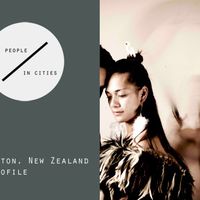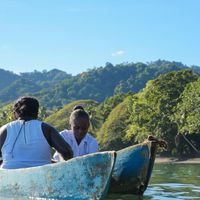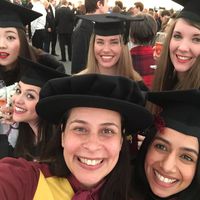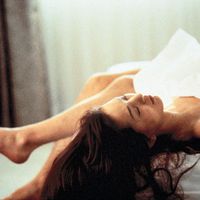Auckland and its Arts Festival | A conversation with Carla van Zon
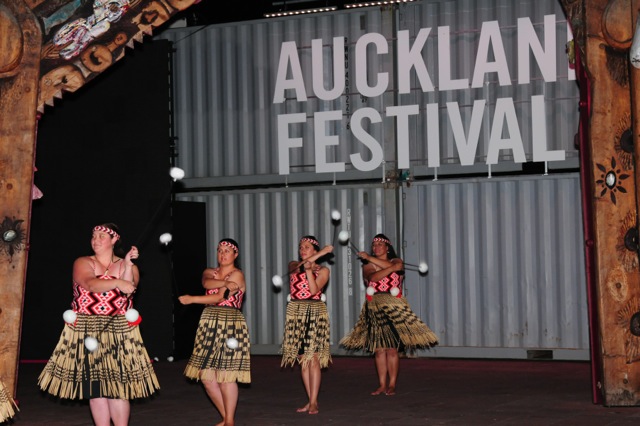 Contributed by Sarah Ropata
Contributed by Sarah RopataNew Zealand arts consultant, Sarah Ropata interviews Carla van Zon, Artistic Director of the Auckland Arts Festival. The two met through work at Creative New Zealand where Carla was instrumental in setting up an international export programme for New Zealand artists. Carla delivered her first successful programme for Auckland Arts Festival in March 2013. Over 81% of her audiences said the Festival made them feel proud to be an Aucklander.
In this interview Carla put’s a lens on Auckland City past, present and future, and shares with us her vision for the role of the arts in this vibrant Pacific community.
[gallery ids="37154,37155,37156,37157,37158,37159,37160,37161"]
Q: How did you get to be the Artistic Director of Auckland Arts Festival?
I am passionate about facilitating artistic and cultural exchange and believe it’s the very best way for people to gain greater understanding and compassion for each other. So programming an international Arts Festival is the best job I could imagine having. I just completed my first Auckland Festival in March this year, which has been enormously rewarding and fortunately both a critical and financial success.
Before taking up the job with Auckland Festival, I was the International Manager at the Arts Council of New Zealand Toi Aotearoa, where I oversaw the development of an international strategy, and a programme to help New Zealand artists to gain international success. And before that I was the Artistic Director of the New Zealand International Arts Festival in Wellington. I had a long and successful relationship with the NZ Festival going back to 1989. I was the Executive Director from 1996 and the Artistic Director from April 2000. During this time the Festival thrived, finally going into the black for the first time and earning the organisation the Dominion Gold Award 2001 for outstanding contribution to the Wellington.
An Aucklander born and bred, I left New Zealand to study Dance and Arts Administration at George Washington University in the USA and then went onto to have a broad range of experiences in the arts, including working with a variety of theatre and dance companies, venues, the New Zealand Film Commission, producing New Zealand work and Co-Directing the New Caledonia New Zealand Season in 2007 for the Governments of New Caledonia and France.
Q: You moved from Wellington to Auckland to do this job, what was the appeal?
Right now Auckland is the second most diverse city in the world, second only to Toronto. It’s also a rapidly changing and growing city and it’s this diversity and energy that enticed me to come back. Auckland Arts Festival is also a relatively new feature on New Zealand’s cultural calendar so it’s an organization that’s very open to new ideas and new ways of doing things. I felt there was huge scope for me to make a difference here, to think outside the box and play a part in helping to form a cultural landscape that reaches out to many different types of people.
Q: Growing up in Auckland in the 1950’s and 60’s you must have seen a lot of change – how does the old Auckland compare with the city of today?
My parents were Dutch and moved to New Zealand in 1951 from Indonesia. We lived out West in the suburbs, which back then was all orchards and native bush. So I grew up surrounded by towering native kauri and rimu trees, big waterfalls and dramatic west coast beaches, the same beaches made famous by the movie The Piano. The city in those days was really a series of little clusters of suburbs and the CBD felt miles and miles away. There was no harbor bridge and the North Shore, which is now a major hub of industry and business, was still a sleepy holiday destination.
I remember we grew all our own vegetables, chilies, capsicums and herbs because you just couldn’t buy anything like that. The produce and tastes were very English and BCC English was heard on the TV and Radio, as immigrants were all expected to assimilate to that. Dad used to buy wine from local Yugoslavian families who at the time were sowing the seeds of the New Zealand wine industry. But you couldn’t go and buy anything like that from the shops.
The CBD itself was very small, there were no high rise buildings, everything shut at 5pm and even twenty years ago the city would shut up after business hours. Not so today where you can see the influence of the diverse population on opening hours and flavors. Tea shops and cafes are now open into the early hours of the morning to cater for large Asian city based population. And at the weekend markets in Otara and Avondale you can find every kind of vegetable and herb imaginable!
Q: Your mum played a key role in the development of contemporary dance in New Zealand - how difficult was that?
Mum was a Laban trained dancer and started dance schools in the city at a time when only ballet or tap were being taught. She started her first school in our lounge and I remember she was very embarrassed! I of course rebelled and went to ballet classes! But Mum’s school really was amazing, it grew across the whole city and many of New Zealand’s professional dancers came through it. She also had an enormous impact on the community, she worked a lot with deaf children and her students went onto pioneer dance work with the disabled. Still to this day I meet people who tell me how they attended her classes and what an effect they had on their lives. She worked hard and really helped to pioneer contemporary dance in New Zealand.
Q: You travel a lot to see new work - how does Auckland compare to other international cities of cultural significance?
So as I’m answering this question I’m looking across the sparkling Auckland harbor on a stunning winters’ day and it’s just gorgeous! Auckland is a city that’s built around a string of harbors and volcanic islands so there’s water and green space everywhere. It feels very open and I think it’s a very livable city. The weather is good, it offers great lifestyle because you have both the big cultural offerings of urban life and easy access to green spaces and great beaches.
Compared to European and Asian cities, Auckland is still very spread out and in a sense it’s still a string of connected villages. But it’s now a 24hr city, with lots of different opening hours, food and activities that reflect the habits of the diverse population.
Q: Auckland is a city of many faces - how do you programme for your multicultural audiences?
I have a number of threads in play when I start to think about programming a Festival for Auckland. At the core of it all sit local artists and in particular Maori, tangatau whenua (indigenous people). Commissioning new Maori work is a very important part of what we do. Then I start to look for works being created by local artists from a wide range of cultural backgrounds. Stepping away from our local base I look for work from other places and cultures that I think are reflective of the people of Auckland. We also co-commission work with other countries and we’re currently involved in a large scale, new work from India.
I also look for work or ideas that I think open up the arts to all types of people. Accessibility is a big thing for me so last year we opened with a piece by the French company Group F, a large scale outdoor event that drew over 50,000 thousand people from the city together. We also programmed free music in the main city square each day, ran a major school programme, had lots of late night and free events like White Night, an evening when all the cities galleries stayed open into the early hours of the morning. We have young audiences in Auckland, which bucks the national trend, a quarter of our people are under 30 and three quarters are under 55. It’s important I keep my ideas fresh and vibrant to reflect that.
Q: What links and connections do you try and develop between NZ and Asia or Europe.
Auckland’s population has a strong Asian influence, 20% Asian of which Chinese, Indian and Korean make up the biggest groups. So I have a deliberate policy to make connections with Asia and at the moment I’m working on a large project that involves partners in Singapore, Korea and China. We are also co-commissioning a large scale work with India and in the last festival we presented a play in Mandarin from the National Theatre of China, which was a first for New Zealand.
I have interest in work that is exploring the bringing together of people and cultures, both recently and over a long time. For example the Chinese community in NZ is both very old and very new the earliest migrants started coming here in the early 1800’s. So I am hoping to programme two plays by Chinese New Zealanders’ that explore some of these connections.
Next I want to programme some Asian pop bands! I love K Pop.
Q: Your vision for the future of Auckland is what?
My vision for Auckland’s future is to see it become a greener place. To see a city that treasures its ecology and grows gardens. I also see it becoming a cultural hub for the country, a place that celebrates and supports the arts and puts its diverse cultures and stories on the world stage.
Q: And in the near future - what should we be keeping an eye out for in your next Festival in 2015?
Next Festival will take place in March 2015. Look out for some large scale outdoor works, a lot of stuff for children, young people and families. New Maori works, a major work from the UK, a number of projects that have strong links to Asia, including our new commission by an Indian artist and a co-production between a New Zealand company and artists in China, Korea and Singapore. To keep up with the latest development you can sign up to our newsletter or start following me on Twitter.
http://www.aaf.co.nz/
Twitter @CarlavanZon
Photo credit: 2013 Auckland Arts Festival, photos by Gate Photography
Sarah Ropata is an Arts Consultant based in Kapiti, New Zealand. In 2012 she led the Author programme for New Zealand Guest of Honour at the Frankfurt Book Fair. Prior to her work as an independent consultant, Sarah was a Senior International Adviser for Creative New Zealand – leading on the export of New Zealand arts, Communications and Marketing Manager for Creative HQ – a Wellington business incubator supporting high growth start-up companies, and worked on arts contracts for the Ministry of Education. Before moving to New Zealand in 1999 she was involved in major events and the film industry in the UK
Similar content
By Kerrine Goh
15 Jul 2013
By Kerrine Goh
03 Jun 2005
posted on
27 Jan 2019
By Kerrine Goh
05 Nov 2004
05 May 2021

